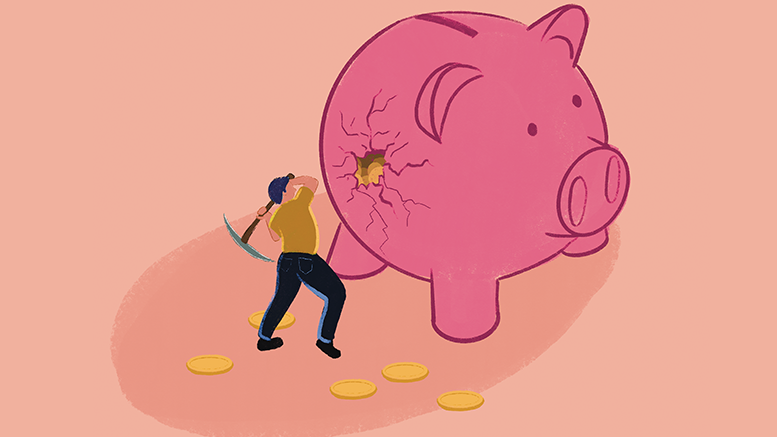A friend recently dragged his dad along to buy a new TV, convinced he needed his help negotiating a better price. Armed with his father’s experience, they walked into the store, only for my friend to quickly find out he did not need his dad’s assistance.
After matching the TV’s price to an online deal he found on Amazon, my friend managed to haggle the price of a soundbar down by $50. As they left the store, his dad turned to him and said, “you didn’t need me here after all.”
Moments like these remind me how much we rely on our older relatives for skills like haggling. Research shows that 1 in 4 millennials prefer to have a parent haggle for them for major financial purchases rather than do it themselves.
Our older relatives have the advantages of experience in haggling and economic literacy, making them generally more skilled at finding a deal. But we cannot let the tradition die with them.
With prices at an all-time high, we need to bring back the art of haggling.
Haggling is the process of negotiating a purchase, typically in a marketplace where buyers and sellers engage in a back-and-forth to reach a price they both agree on.
In many cultures around the world, haggling is a common practice. But, in North America, haggling is much more limited to big-ticket items like houses and cars. However, even in the automobile industry, we are losing the normalcy of haggling due to a lack of supply. Homebuyers can be seen pulling out of potential bidding wars to avoid paying over the asking price.
Fixed pricing became commonplace in the market alongside department stores and, in some ways, can be both ethical and helpful for the consumer and the seller. Fixed pricing assigns a strict, immovable ticket price for an item, set by the seller.
The issue with fixed pricing is that there is no room for negotiation, and it is inherently discouraged by the creation of a standard ticket price. The seller makes an offer and the buyer then chooses to access the product or to leave it entirely.
This lack of flexibility often benefits sellers more, as it discourages the possibility of compromise or personalized offers, leaving consumers without room to advocate for better terms.
Accepting fixed prices without question means laying down and allowing skyrocketing prices — on groceries, rent and services — to dictate our financial situations. Financial situations are generally not very good, especially for young adults.
By incorporating haggling into our buying habits, we can push back against the inflated costs that are bleeding us dry. Not only can this save us money, but it can also build our confidence and economic knowledge, giving us more control over our personal finances and putting pressure on stores to yield to the demands of the consumer.
Haggling and negotiating with large retailers or big-box stores, like grocery chains that feel untouchable in their pricing, is a crucial area where we can create pressure.
For instance, Superstore offers “ad matching.” I encourage young consumers to take advantage of this by finding better deals online or at other retailers and negotiating for the same price as often as possible.
This practice shows retailers that we young folks are not passive buyers but active participants in determining fair prices. The more we push back, the more likely stores will offer flexible pricing options or sales that work in our favour or at least become accustomed to it.
Online marketplaces are also a great place to sharpen our haggling skills.
Platforms like Craigslist, Facebook Marketplace and Kijiji are built around bartering and negotiating, and it is common for buyers and sellers to engage in friendly price discussions.
Starting here makes negotiating feel less intimidating, and you can get comfortable asking for better deals. Whether buying a used bike or selling old furniture, these platforms provide a low-pressure environment to build confidence and learn how to negotiate.
Haggling is a lost art that young people must reclaim for their financial well-being and consumer buying power. It is a skill that can save money, build confidence and push back against big corporations. By negotiating prices, we can regain control in a fixed-price market.



